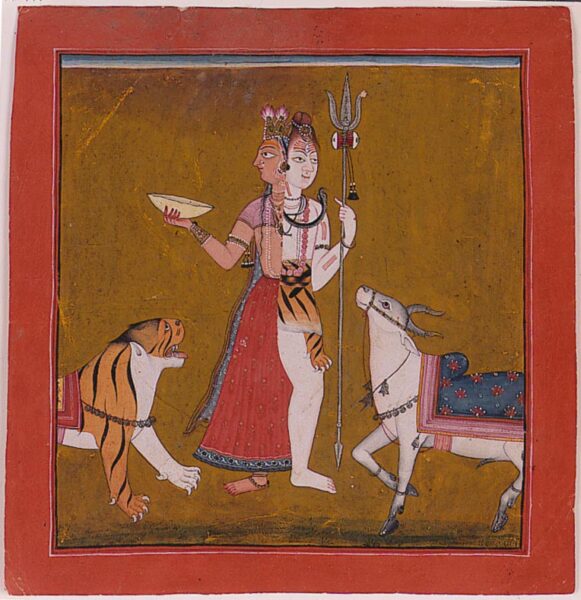
He was not at all happy. Therefore people (still) are not happy when alone. He desired a mate. He became as big as man and wife embracing each other. He parted this very body into two. From that came husband and wife. Therefore, said Yājñavalkya, this (body) is one-half of oneself, like one of the two hálves of a split pea. Therefore this space is indeed filled by the wife. He was united with her. From that men were born.
Brihadaranyaka Upanishad 1.4.3
The Y is easy: because. The Why follows the Cause. The Y is to be or not to be asked in the First Person. The waxing and waning aspect of the mind. The X is the paradox. A riddle, wrapped in a mystery, inside an enigma. The eX preceding the performatives of time and space. The X is the Hymn of Creation sung in the Third Person. The source from which all proceeds and to which all returns. Their Union is the coincidentia oppositorum. The puruṣa (spirit) bound with prakṛti (substance). The conjugation of the formless spirit and the cosmic substance from which rend the particulars. The imbalance of Sattva, Rajas and Tamas that manifests the causal body in search of the “I am.”
BIBLIOGRAPHY: 1. Shiva, the Lord Whose Half Is Woman (Ardhanarisvara). circa 1710. Watercolor on paper. Mankot School, Western Punjab Hills. 2. Śaṅkarācāryaḥ, Ādi. Brihadaranyaka Upanishad with the Commentary of Śaṅkarācārya. Translated by Swami Madhavananda, Calcutta: Advaita Ashrama, 1997. Print. 3. Churchill, Winston. "The Russian Enigma". BBC Broadcast. London. 1st October 1939. Address. I cannot forecast to you the action of Russia. It is a riddle wrapped in a mystery inside an enigma; but perhaps there is a key. That key is Russian national interest. It cannot be in accordance with the interest of the safety of Russia that Germany should plant itself upon the shores of the Black Sea, or that it should overrun the Balkan States and subjugate the Slavonic peoples of south eastern Europe, That would be contrary to the historic life-interests of Russia.